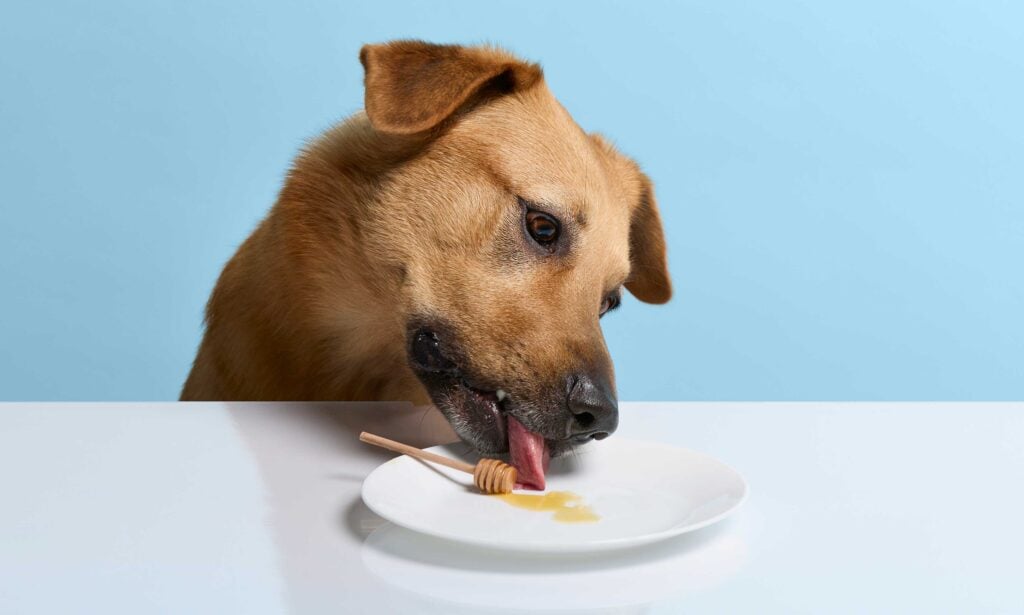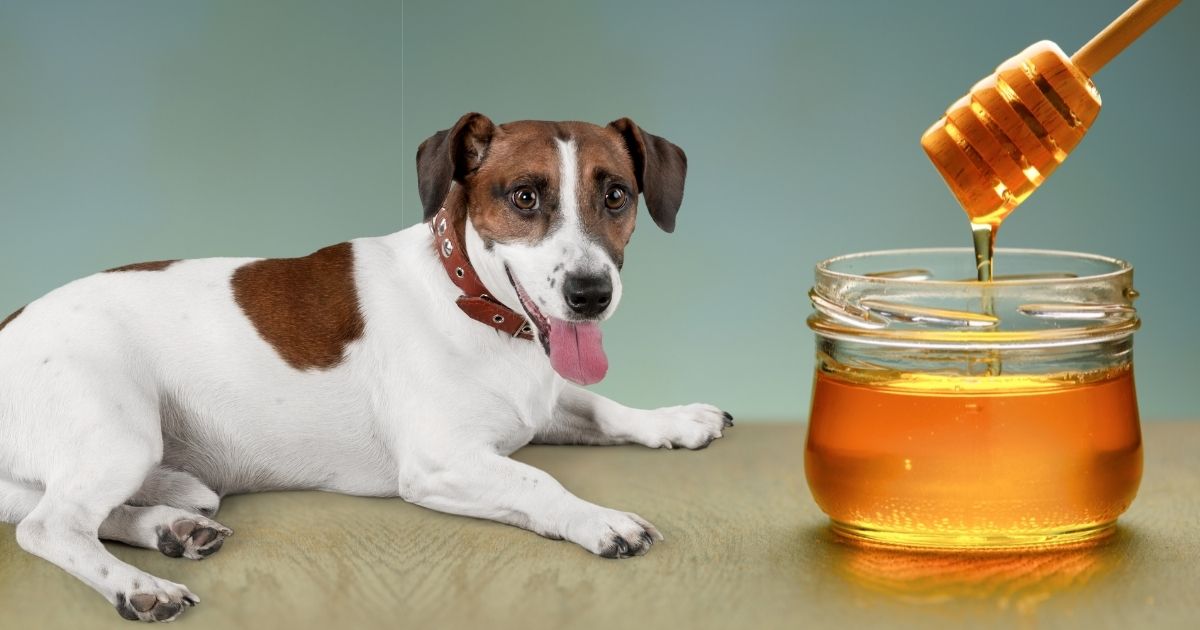Can Dogs Eat Honey? The Sweet Truth About Giving Your Pet This Natural Treat
As pet parents, we're always on the lookout for ways to give our furry friends the best. Sometimes, that curiosity extends to the foods we enjoy ourselves. One common question that buzzes around is: "Can dogs eat honey?" It's a natural sweetener with a reputation for health benefits in humans, but does that extend to our canine companions?
The answer, in short, is nuanced. While honey contains sugar and you have to use caution, there are definite health benefits. In small amounts, honey might be safe, but here's why too much is unsafe. It's a topic that requires a balanced understanding, combining the potential upsides with the necessary precautions.
The Buzz About Honey: Can Dogs Really Have It?
Let's get straight to the core question. Yes, dogs can have honey in moderation. Honey is non-toxic to dogs, making it safe for them to eat. This means that a lick or a tiny spoonful isn't going to send your dog to the emergency vet. However, the key word here is "moderation." Honey is high in sugar and calories, so you should only give it to your dog as an occasional treat. It should never be a staple in their diet, nor should it be given in large quantities.
Yes - honey is safe for most healthy adult dogs to eat in small amounts. It's important to understand that while it's not harmful in itself, its composition demands careful consideration. Think of it less as a daily supplement and more as a rare, special indulgence.
Beyond the Sweetness: Potential Health Benefits of Honey for Dogs
So, if it's high in sugar, why even consider giving it to dogs? The reason lies in the other components of honey. Yes, honey can be a healthy treat for dogs if given in moderation. Honey is a nutritious powerhouse with many medicinal properties, so it benefits a dog's health! Raw honey, in particular, contains a wealth of beneficial elements.
Natural Antibacterial and Antiviral Properties
One of the key benefits of honey for dogs is its natural antibacterial and antiviral properties. This is a significant point of interest for many pet owners. Honey contains hydrogen peroxide, which can help kill harmful bacteria and viruses in your dog's system. This property is why honey has been used for centuries in traditional medicine for various ailments, from soothing sore throats to aiding in wound healing.
Nutritional Powerhouse
Beyond its antimicrobial qualities, raw honey contains sugars, enzymes, vitamins, and minerals. These components contribute to its status as a "nutritious powerhouse." While the quantities of these micronutrients might be small in the tiny amounts you'd give a dog, they still add to the overall nutritional profile. These natural enzymes can also potentially aid in digestion, while the vitamins and minerals contribute to general well-being.
Source of Quick Energy
Given that honey contains sugar, it also serves as a quick source of energy. For active dogs or those needing a slight boost, a very small amount of honey can provide readily available fuel. However, this is also where the caution comes in, as too much sugar can lead to energy crashes and other health issues.
Choosing the Right Honey
If you decide to offer honey, choose raw, unfiltered honey when possible, as it retains more of its natural benefits. Processed honey often loses many of its beneficial enzymes and nutrients due to heat treatment and filtration. Raw honey is closer to its natural state, preserving those valuable properties that make it a "nutritious powerhouse."
The Sticky Truth: When Honey Might Be Unsafe or Not Recommended
Despite the potential benefits, it's crucial to understand why caution is paramount. While honey is not toxic for dogs, we would advise against feeding it to your pooch without careful consideration. There are actually some benefits of honey for dogs when fed in small amounts, but it’s important to know that not every dog can eat honey safely.
High Sugar Content
The primary concern with honey is its extremely high sugar content (it’s basically pure sugar). This factor cannot be overstated. Because honey is high in sugar and calories, you should only offer it in limited quantities. Too much sugar in a dog's diet can lead to several problems:
- Weight Gain and Obesity: Just like in humans, excess calories from sugar can quickly lead to unwanted weight gain, putting strain on joints and organs.
- Dental Problems: The sticky, sugary nature of honey can contribute to plaque buildup and tooth decay in dogs, leading to painful dental issues.
- Risk of Diabetes: While not a direct cause, consistently high sugar intake can increase a dog's risk of developing diabetes, especially if they are already predisposed.
Calorie Density
In addition to sugar, honey is also calorie-dense. Even a small amount can add significant calories to your dog's daily intake, which is especially problematic for dogs on a strict diet or those prone to weight gain. This is why it must remain an "occasional treat" rather than a regular addition.
Not for Every Dog
As mentioned, not every dog can eat honey safely. While it's generally safe for most healthy adult dogs, certain conditions or life stages make it unsuitable:
- Diabetic Dogs: Dogs with diabetes or those at risk of developing it should absolutely avoid honey due to its high sugar content, which can cause dangerous spikes in blood sugar.
- Obese Dogs: For dogs struggling with weight, adding extra calories from honey is counterproductive to their health goals.
- Puppies: While not explicitly mentioned in all data points, it's generally advised to avoid giving raw honey to puppies under one year old. This is due to the potential presence of botulism spores, which their underdeveloped immune systems may not be able to handle. Adult dogs typically have stronger digestive systems that can neutralize these spores.
- Dogs with Allergies: As with any new food, there's always a slight risk of an allergic reaction.
How to Safely Offer Honey to Your Dog (If You Choose To)
If, after weighing the pros and cons, you decide to offer your dog a taste of honey, here's how to do it safely and responsibly:
Moderation is Key
This cannot be stressed enough. Yes, dogs can have honey, but only in very small amounts and infrequently. We're talking about a tiny dab, perhaps a quarter or half a teaspoon for a medium to large dog, and even less for smaller breeds. It should be an occasional treat, not a daily supplement. Think of it as a special surprise, not a regular part of their meal.
Consult Your Veterinarian
Before introducing new foods into your dog's diet, especially something like honey, always consult your veterinarian. Your vet knows your dog's individual health history, existing conditions, and dietary needs. They can provide personalized advice on whether honey is appropriate for your specific pet and in what quantities, if any.
Monitor Your Dog
After giving your dog honey for the first time, observe them closely for any signs of adverse reactions, such as digestive upset (vomiting, diarrhea), lethargy, or allergic symptoms (itching, swelling). If you notice any unusual behavior, contact your vet immediately.
The Final Scoop: Honey for Dogs
In conclusion, the question "Can dogs eat honey?" has a conditional "yes." Yes, dogs can have honey in moderation. While honey is high in sugar and calories, so you should only give it to your dog as an occasional treat, there are definite health benefits, particularly from raw, unfiltered varieties. These benefits include its natural antibacterial and antiviral properties, and its rich content of enzymes, vitamins, and minerals.
However, the significant sugar content means it's not suitable for every dog, especially those with diabetes, obesity, or very young puppies. The golden rule remains: in small amounts, infrequently, and always with the prior approval of your veterinarian. Honey can be a sweet treat for your dog, but it's crucial to approach it with caution and responsibility to ensure their health and well-being.

Can Dogs Have Honey? Everything You Need to Know | BeChewy

Can Dogs Eat Honey? Is Honey Safe For Dogs? | Puplore

Can U Give Dogs Honey